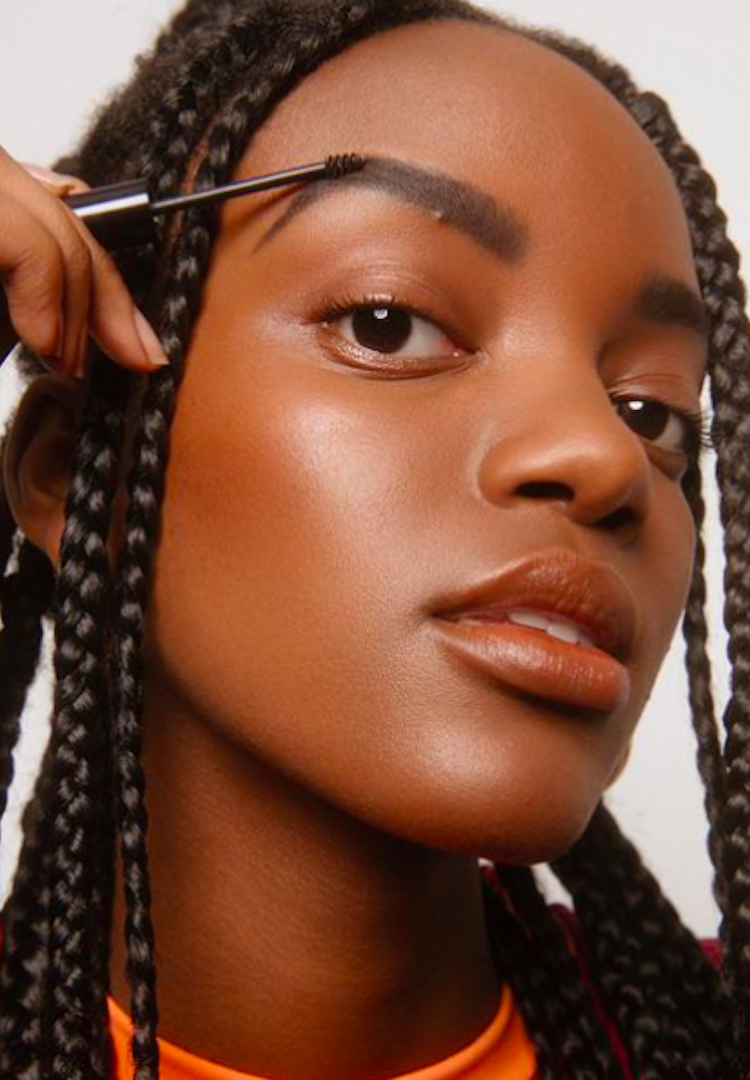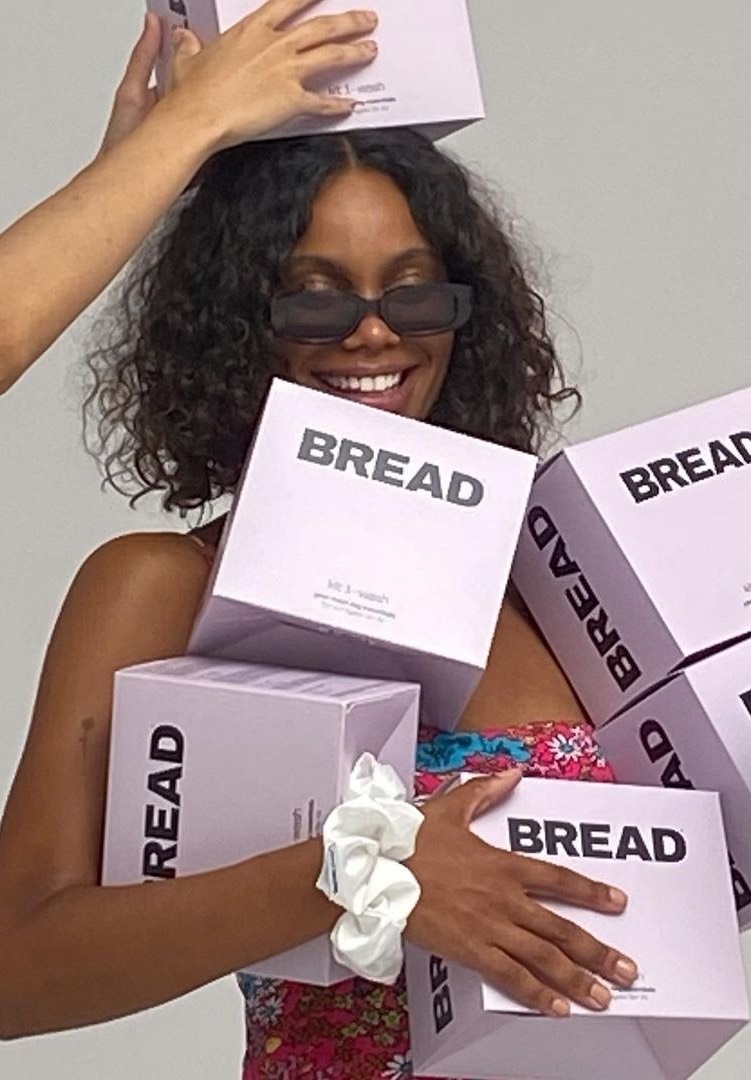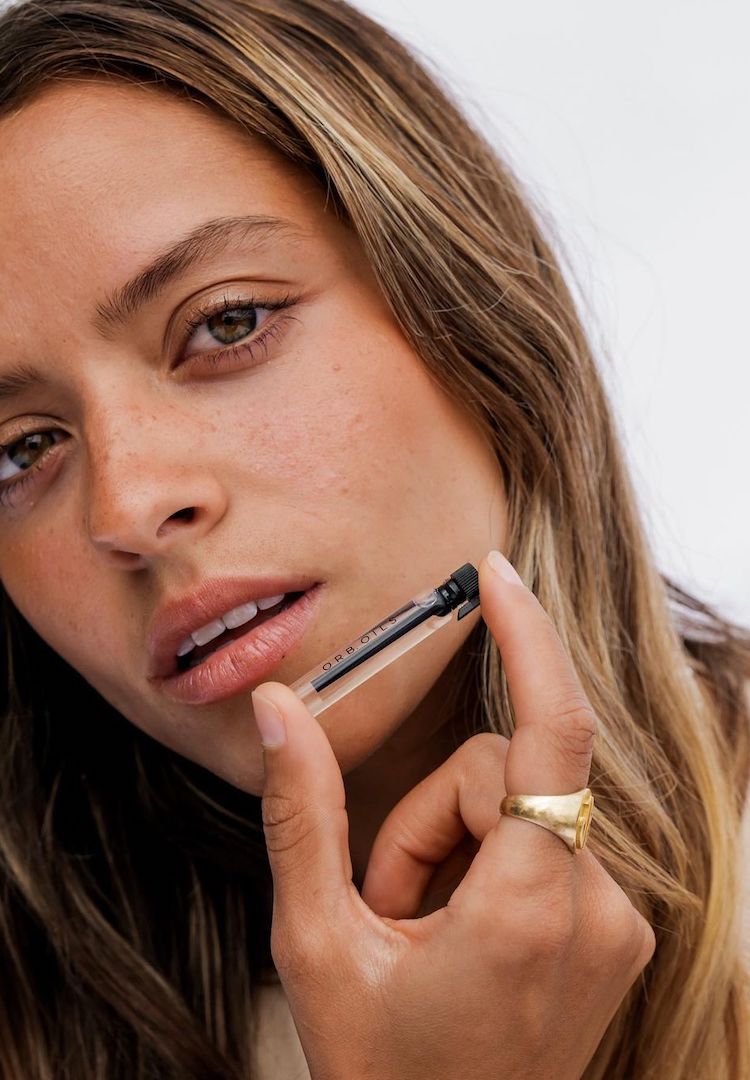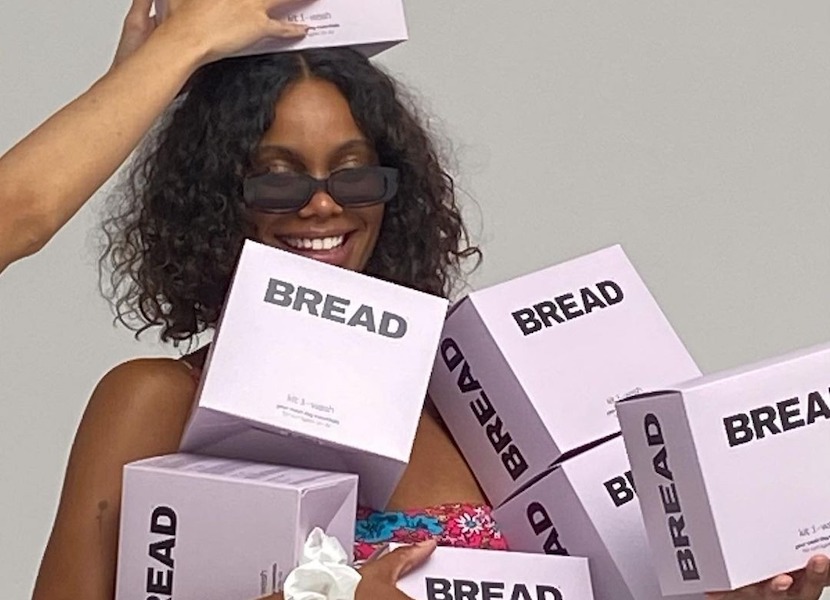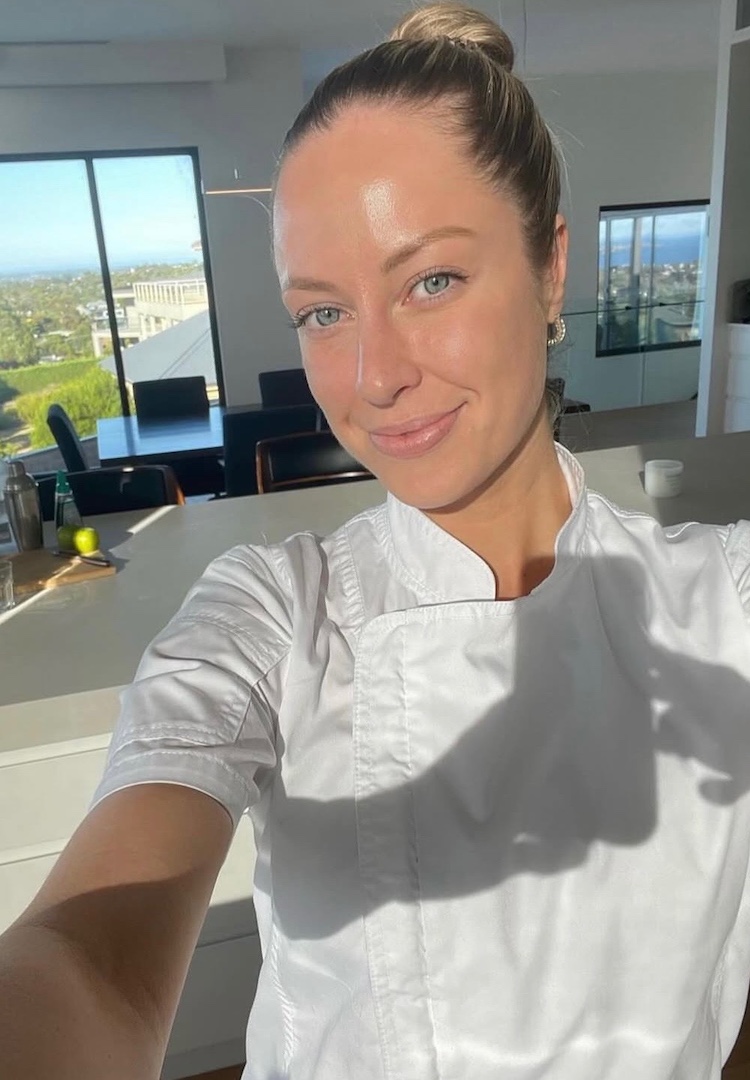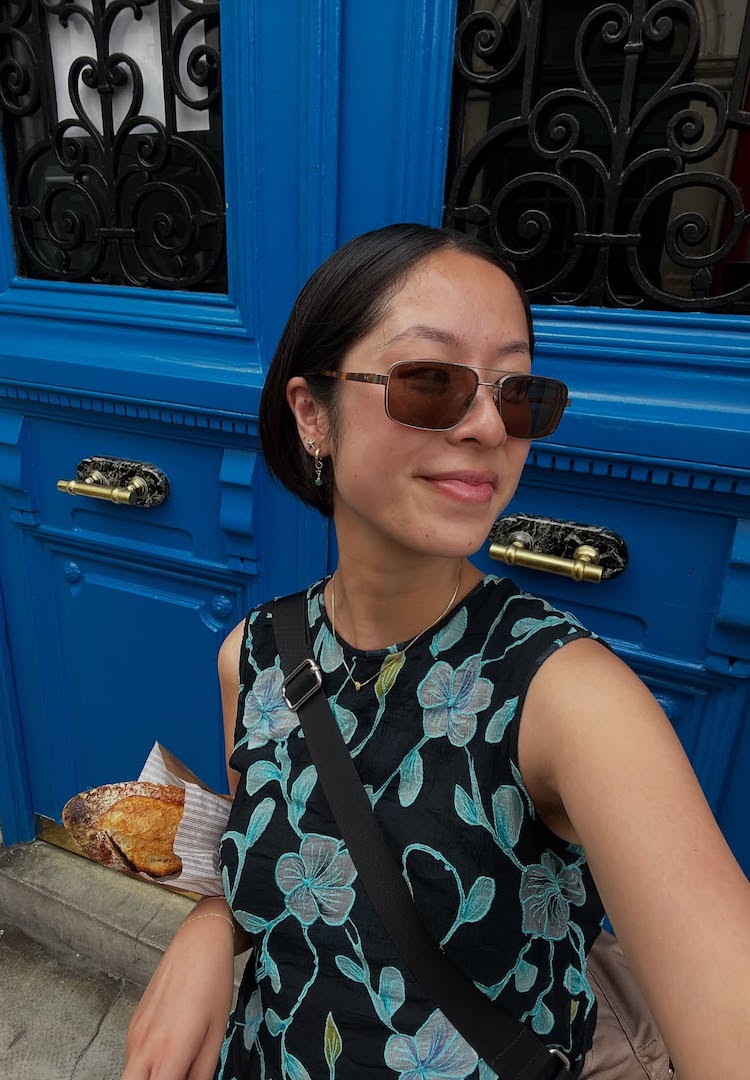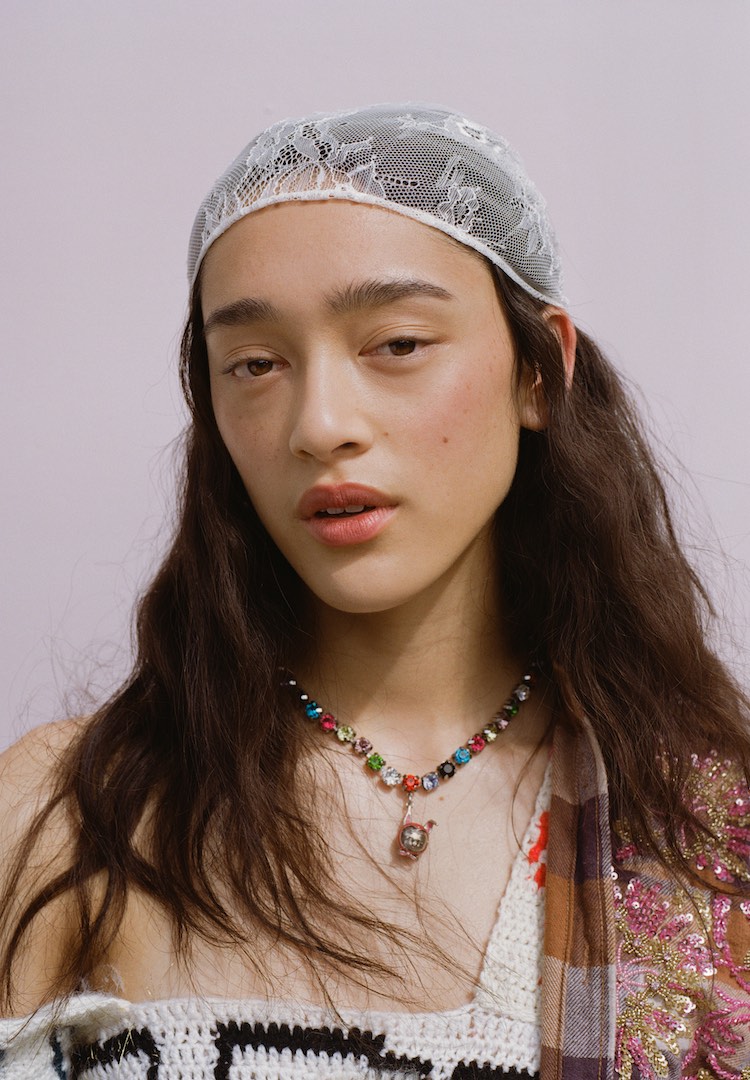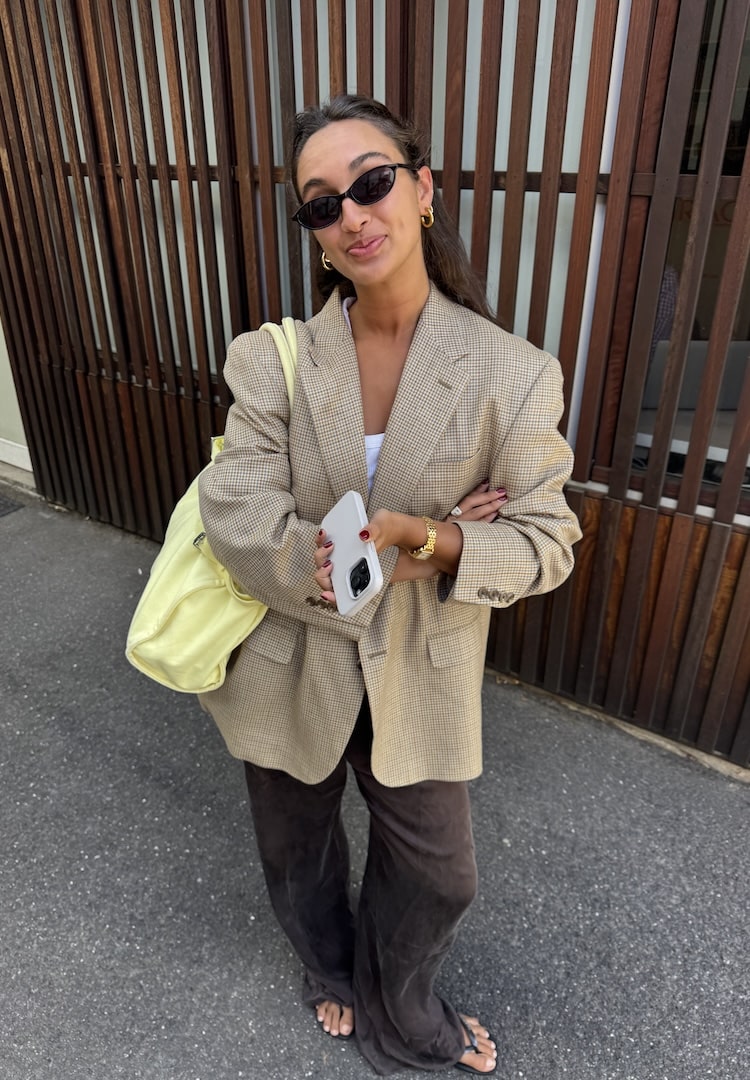5 lessons on the business of beauty from the founder of Bread Beauty Supply
WORDS BY DOONE ROSIN
This is an excerpt from Doone Rosin’s debut book, Your Hype Girl, where 51 female founders share their most impactful learnings, tactics and strategies.
Maeva Heim is the founder of Bread Beauty Supply (or just Bread for short). Bread is a hair care line for curly hair that aims to simplify hair care for those with 3A to 4C curls. A recent article I was reading about Maeva said it perfectly: “This new haircare line wants to make ‘lazy girl hair’ an option for Black folks too”.
I actually met Maeva by chance in 2019, when I was in Melbourne visiting a girlfriend, and I randomly recognised her voice from a podcast that I’d listened to her speak on before! Maeva stepped me through how she launched exclusively with Sephora, what she’s learned so far on her entrepreneurial journey, and what things resulted in a few giggles along the way.
Interested to hear how others navigate the world? Head to our Life section.
Maeva’s journey to being an entrepreneur was a long one that started with her entrepreneur mom; her mom had a hair salon “in a tiny, little garage at the back of an Italian restaurant”. Maeva worked for many years in the corporate world, including within the beauty industry for brands such as L’Oréal. It was there that she spotted a problem she wanted to find a solution for.
“I just got to a point where I was really fed up with the beauty industry. I was behind the scenes of this enormous corporation, working on some of the biggest brands in the world. And I didn’t feel like those brands were talking to me. There weren’t many foundation shades in the market for women who look like me and women with darker skin tones. I really saw that as, one, a huge problem and, two, an opportunity to potentially start my own brand.”
You don’t have to be powerful to make an impact
Although Maeva had spotted a problem, she initially felt she had to be a powerful industry leader to really make an impact. But her story, like so many others I have heard, proved that theory wrong.
“I felt like you have to be in a position of power in order to really have the effects trickle down into the market. And I remember complaining about this to my partner one day and saying there aren’t enough female founders in beauty that have massive companies. There aren’t enough Black women CEOs of these big companies that can make decisions to impact the market.”
Her partner gave her a push in the right direction: “He was like, well, what are you going to do about it? And it was kind of that moment that I was like, oh, well, I guess I could do something about it.”
Picture your customer
Maeva’s original plan was to start a makeup company with one hundred different shades. Then, on a trip to Colorado, her hair-straightening product exploded in her bag, and it got her thinking how unhealthy these chemicals were. That led her down the rabbit hole of considering hair products for African American hair types, and she realized that the market was seriously lacking innovation.
In crafting her brand, Maeva put a lot of emphasis on being relatable to her target market. Being relatable and accessible in your brand’s tone of voice has proved to be an effective strategy for many successful startups.
“I think that a lot of the brand and the vibe and the aesthetic has been driven by this woman that I was seeing online who wasn’t being spoken to by other brands in this space. And so I was looking at these brands. A lot of them were heritage brands with a look and feel that was very polished and glossy. The way this woman presented herself was completely in opposition to what you would see in the market. I thought that there had to be room for a brand like Bread, to be a product that you’d be really proud to have on your bathroom shelf and that aligns with her identity.”
Stick to your vision
So far, Maeva hasn’t found it all that easy to translate her vision through a team. It’s true that no one else will have quite the same understanding of the vision as the founder. This can be a stumbling block, and part of the founder’s job description is to ultimately relay their vision effectively to a team. But nevertheless, there’s no substitute for being hands-on.
“I worked with multiple different people to bring it all together. But I think, in the end, a lot of it was my gut. That has probably been one of the most difficult pieces of building this brand. Because when you have an idea in your head and you know what you want something to look like, it can be very difficult for somebody else to translate something that exists only in your mind.
“And, of course, when you’re working with designers, designers want to design. But if you already have a strict idea of what you want, it can be really difficult to rein people back and be like, ‘No, we don’t need new concepts.’ And we’re still on that path of finding a team who can really translate that vision into tangible things because a lot of that work I still do myself.”
Validate your idea with data
Maeva’s first step was to validate her idea by gathering data. It’s one thing to have an idea in our heads of what we think the market needs and wants. But it’s vital to gather data and find out if our thinking is correct.
“It’s so funny because I was in this phase for so long of listening to all the podcasts, going to all the conferences, reading all the founder stories. And that was always my one question: what is the first thing that you did? Because I felt so stuck even when I landed on this concept and even though I knew that this was what I wanted to build. There was still so much push and pull about ‘What do I do first?’
“The first thing that I did was figure out if other people would agree with my thinking. I was scraping the internet, any kind of market research that I could find for free that would validate that there were other people that would need this. Just getting that data and getting those insights made me feel really confident about the direction and made me really feel good about how we would position this story to investors or to retailers or whoever it might be.”
Network at conferences
Maeva’s vision was to impact the market, and to do that, she knew that she would have to go large. She set her sights on the mega-retailer Sephora, and her next challenge was how to connect with them. Cold calling sucks even though it does the job half of the time, IMO, but in most cases, there’s nothing more valuable than a warm introduction or, failing that, a chance to introduce yourself face-to-face. Networking at conferences can be a great way to do this.
“Going the traditional route of finding someone’s email and sending an email to a buyer is probably not going to get you through. I knew that there was an opportunity to potentially speak to a Sephora executive at events. That’s one way that I’ve been able to meet different people and build relationships. So I ended up going to this conference in LA, and I knew that there was going to be a Sephora representative speaking. She kind of went off to get some lunch and was just wandering around, and I approached her, and I just introduced myself, said, ‘I’m working on this brand. What is your advice for being able to get a meeting with a buyer?’”
Maeva had success, and the Sephora representative was open to finding out more. “She was like, ‘Do you have product samples?’ And I had some really early product samples at the time. I said, ‘Yeah, I’ve got some samples, and I’ve got a brand.’ And she said, ‘Well, here’s my card. Email me the deck, and I’ll get it to the right person.’ How easy was that? I thought, Was that too easy? I don’t know. I just asked for advice. And now you’re going to connect me with the buyer!”
Doone Rosin is an Australian living in London and the host of the highly-acclaimed Female Startup Club podcast. She’s built a thriving career in speaking to incredible female founders across the globe and sharing their biggest learnings in business with other aspiring females entrepreneurs. You can grab a copy of her debut book, Your Hype Girl, here.
Listen to Maeva’s episode to find out how she got funding for her business, how she worked with influencers, and what cliche turned out to be her best advice.

